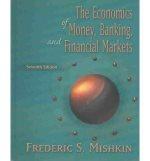Question
Question 1 What is the role of a Board of Directors in corporate management, and from where do directors obtain their power to make these
Question 1
What is the role of a Board of Directors in corporate management, and from where do directors obtain their power to make these decisions?
| a. The Board of Directors (BOD) is made up of the top level management, each called a director, of the corporation. They manage the day-to-day operations of the company. The Chairman of the Board is always the CEO. The power to make these decisions is from employment in the Board itself. | ||
| b. To make sure that bond holders receive no money and that stock holders receive all of the money in a corporation. The Board of directors is inherently corrupt and any bank that lends to a company that has a board of directors will lose money. | ||
| c. To provide oversight and, if necessary, termination of CEOs and other top-level management at corporations. They obtain their authority through ownership of shares which grants voting power to the directors through a process known as proxy. | ||
| d. Members of Board of Directors are completely and utterly independent of the company. Since all members of the BOD are external the BOD provides monitoring and oversight of the company and it's CEO--who is always Chairman of the Board. |
Question 2
Which of the following has a secondary claim on profits, (usually) no voting rights, and is considered a 'hybrid' security due to its reasonably consistent payment of cash-flows in the form of a dividend?
| a. Common Stock | ||
| b. Secured Loans | ||
| c. Bonds | ||
| d. Preferred Stock |
Question 3
A dividend is a form of cash flow for a?
| a. Secured Loan | ||
| b. Debenture | ||
| c. Bond | ||
| d. Share of Common Stock |
Question 4
A common valuation report investors use to make at-hand investment decisions in equities is the:
| a. Value-Line Report | ||
| b. Yahoo Finance Stock Page | ||
| c. BloombergMarket Minute | ||
| d. MorningStar Bond Report |
Price-to-Earnings ratio is often used to gauge the relative cost of one stock to another with respect to earnings. The average P-to-E (or P/E) is 15 to 25 for most companies in the market. If a company is trading with a P/E of 85, should you buy the stock?
| a. Yes, the shares are cheap. | ||
| b. Provided other shares in the market are still trading at the average P/E, this company's stock is relatively expensive and should not be bought at this time unless there is some reason to rationalize such a price multiple (such as large expected sales growth in the future) | ||
| c. No, the shares are categorically expensive and therefore it is a bad investment. | ||
| d. The P/E is a bad proxy for value and is never used in reality. |
Step by Step Solution
There are 3 Steps involved in it
Step: 1

Get Instant Access to Expert-Tailored Solutions
See step-by-step solutions with expert insights and AI powered tools for academic success
Step: 2

Step: 3

Ace Your Homework with AI
Get the answers you need in no time with our AI-driven, step-by-step assistance
Get Started


